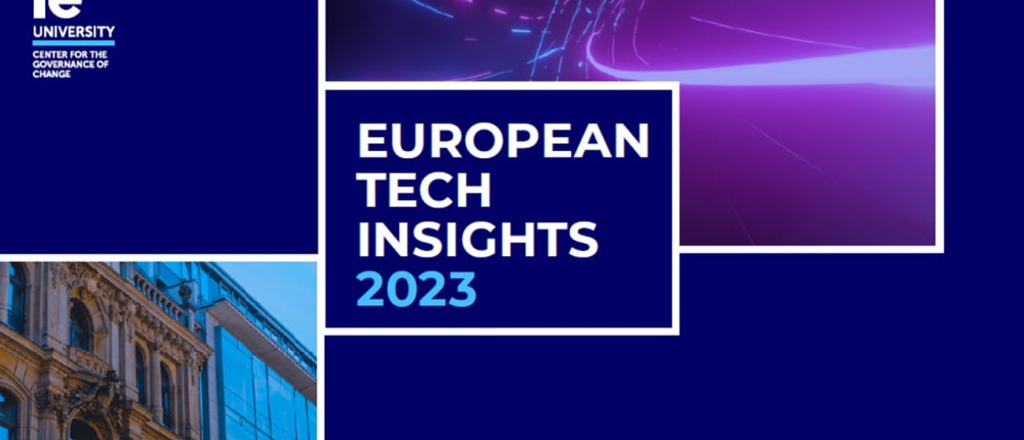IE University research reveals that 68% of Europeans (EU & UK) want government restrictions on AI to protect jobs

Today IE University’s Center for the Governance of Change (CGC) launched its annual European Tech Insights report, which reveals European and British citizens' attitudes toward technology and AI-related issues. This research reveals that 68% of Europeans (EU & UK) want government restrictions on AI to protect jobs.
In a rapidly evolving technological landscape, Europe and the UK's stance on various tech-related issues has come under the spotlight. The data reflects a continent that largely supports UK government and EU involvement in implementing technological regulation.
- 44% of Europeans trust the European Union more than their own countries to regulate Artificial Intelligence (AI)
- The United Kingdom is the only country where a majority (51%) trust their government more than the EU to regulate AI. Nonetheless, a quarter (25%) of Britons would prefer EU oversight.
British and European citizens' priorities become evident in this report as they emphasize safety over data privacy, although there is a gender disparity in the findings:
- A majority of Britons and Europeans (60%) are willing to give away their privacy rights by sharing their data with companies and governments to combat global threats such as terrorist attacks or hacking attempts.
- Italy (53%) and Estonia (52%) are the only countries where only a slight majority of their citizens refuse to share personal data to combat global threats.
- Women are more reluctant to share their personal data compared to men (55% versus 65% respectively)
The report also looks into attitudes about using AI for medical diagnoses and appetite regarding cyber enhancements and gene editing.
- 18% of Britons and Europeans would trust an analytical diagnosis by an AI system more than an observational one from a human doctor. This percentage increases to 27% in Sweden and 25% in Romania.
- The majority of Europeans and Britons (58%) believe that gene-editing technology will be positive for humankind and bring positive outcomes.
- A third of the continent’s citizens (34%) would be willing to get a brain implant to augment cognitive abilities.
- This sentiment reaches nearly half of the population in Sweden (49%), Poland (47%) and Romania (46%).
The report also reveals the UK and European responses to the EU’s recent warning against using TikTok due to privacy concerns:
- A third of EU and UK citizens (33%) are willing to continue using apps that may pose a risk for their privacy, even if the EU advises against using them.
- The prioritization of privacy tends to increase with advancing age, as 76% of those above 75 years old would uninstall the app.
Carlos Luca de Tena, Executive Director at the IE Center for the Governance of Change commented: “This year’s European Tech Insights has shown an important reliance on the European Union for regulating Artificial Intelligence. European citizens are still unsure about some aspects of AI and automation, particularly when it comes to labour, but are starting to embrace healthcare-oriented high-tech. When it comes to digital privacy, Europeans surprisingly prioritize safety or the use of apps over the protection of their personal data.”